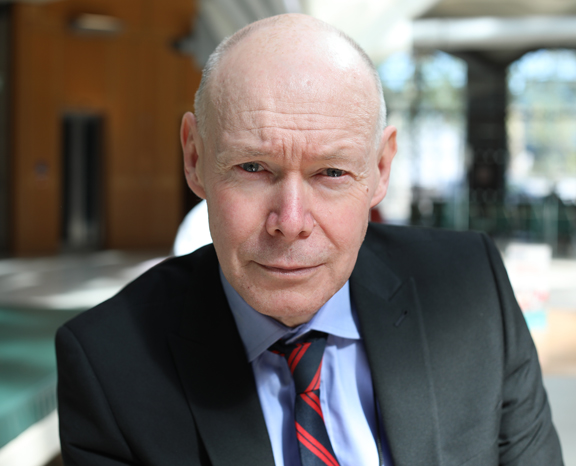
Report of APPG on retirement housing 27 March 2023
We thought scandals in retirement housing would be the downfall of the leasehold system, but that was before doubling ground rents and the Grenfell disaster
By Sebastian O’Kelly, trustee LKP and founder of BetterRetirementHousing.com

When Martin Boyd (LKP chair) and I began this – he the chair of Charter Quay in Kingston, the most valuable enfranchised block of flats in the country; me, a national newspaper journalist – we always thought that it would be scandals in the retirement sector that would crack the leasehold system and make the unanswerable case for doing away with it.
It has to be said, 10 or so years ago it looked like we on the right lines.
The then Office of Fair Trading did away with the one per cent exit fees that the retirement housebuilders had squirrelled into retirement leases for no good reason at all (except that they could); Peverel’s (which afterwards renamed itself FirstPort) subsidiary Cirrus had been rumbled by running a bid-rigging racket for electronic door entry systems – no punishment of course, but £100,000 repaid as “a good will gesture” to the cheated retirement sites; we alone revealed the utterly dismal resale values of retirement flats evidenced by the unspun, unargable data of the Land Registry – an argument taken up by The Times which boldly claimed families had lost £3 billion as a result of their decisions to buy retirement flats.
I suppose one could also throw into the mix the arrest of Vincent and Robert Tchenguiz, property financiers and at the time at the top of the corporate players in the UK, by the Serious Fraud Office in February 2011. They owned – and astonishingly Vincent still does, although deeply indebted – one per cent of all the residential freeholds in the country, including almost all the old McCarthy and Stone and Pegasus retirement sites. One must add that they won a judicial review into their arrest, which was ruled wrongful. So no stain on their character.
The money in retirement housing has commissioned report after report from assorted think tanks and other bodies – some of which really should have known better – urging the case for downsizing, freeing up the housing market, vacating big empty family homes for younger generations etc.
But the consumers stubbornly remain wary and unpersuaded. Only 2 per cent of over 60s in the UK live in designated retirement sites, which is tiny compared with other English language jurisdictions like North America, Australia and New Zealand.
The obvious explanation – ignored on the whole by reports into the sector – is that the old do not trust it. Quite understandably, in my view. And prefer simply to downsize to smaller houses or flats in the general, non-retirement specific market.
In short, Martin and I were right to be concerned about this sector, but wrong to think that a sector of less than 300,000 units was really going to be the motor behind reform of the leasehold system by which we sell and manage flats.
However, both of us had underestimated the greed and stupidity of our hugely subsidised housebuilding sector, who started spreading the scourge of leasehold houses around the country adding to them impossible income streams such as ten-year doubling ground rents, which meant they were unsellable and unmortgageable – once the lenders had woken up to what they had foolishly issued loans to in the first place.
We managed to make this a national issue by the autumn of 2016.
And then came a far worse disaster: the tragedy of Grenfell in June 2017. By the autumn of that year we were asking whether the leasehold system would survive the kind of scrutiny that would inevitably result: our plc housebuilders had built with sneaky and cheating income streams in leasehold tenure, and they had knowingly built rubbish as well.
After wasted years, government woke up to the issues and the property sector’s hold on decision makers was broken.
The Leasehold Reform (Ground Rents) Act – which has ended new ground rents – passed with barely a whimper last June and the full gamut of leasehold reforms including commonhold are promised.
Inevitably, our focus has shifted from retirement housing in recent years, but it remains the orgin of our organisation and a sector we do want to see improve and prosper.
Living in a retirement community is an excellent solution for many older people, particularly those becoming frail or who are bereaved.
I am always drawn up short by an old fellow in Yorkshire, who bought a flat off a household name retirement housebuilder who said:
“I know I paid too much for it; I know the service charges are too high and uncontrollable; I know the flat will sell for half what I paid for it. But after my wife died, the others in the block consoled me and were an invaluable comfort and relief. What’s the price of that?”
It is important to understand that there is a division in the retirement sector: between the housebuilders who knock out retirement flats, sell them and move on; and those retirement community providers who manage these sites for the long term. The management, in short, is the business.
The two sides are coming together to some degree. The old game of loading income streams into the leases of your customers, and making a run for it, is coming to an end.
Ground rents – absurdly high in retirement flats, at £450- £550 a year, so therefore quite unmortgagable – have come to an end. It is depressing to see the annual report of one of the retirement housebuilders which expresses the hope to reverse this ground rent ban.
But on the whole, the business models of the retirement community operators and the housebuilders are aligning, and that is something to be welcomed.
There are still going to be many issues.
The result of the past 25 years of boom in the world economy – the fruit of the labours of people very distant and more skilled than those to be found here – led to the UK (and other parts of the West) to ramp up the value of the family silver. among it being UK residential property, which in investment terms should be as dull as ditch-water, has become a hyper-inflated worldwide investment asset.
Housebuilders ran off to Dubai, Singapore and Shanghai to flog their products to eager investors. And still do.
All those who owned residential property over the past 25 years have seen their wealth hugely increase.
Retirement housebuilders of every sort want to tap this market, and get older people to swap their blameless, valuable freehold houses and trade them for new and shining apartments.
It is no surprise that the likes of Blackrock, the US private equity fund, and Goldman Sachs have been eager to enter this market.
Add in highly complex property contracts such as shared ownership – where consumers are at the mercy of both leasehold law and as a tenant paying monthly rent – and it becomes evident why such dubious notions such as “for profit social housing” – surely akin to “Atheists for God” – are now coming to the fore.
We have made a right mess by making our housing a worldwide investment asset, and pricing out the young who have been in unequal competition for homes with baby-boomer buy-to-letters and, more recently, worldwide-eager investors.
I will just end by this: if you are slightly confused by the young and educated repudiating their culture, wanting to chop down the forest of statues around places like this [Westminster], rename ancient hospitals and schools and so on, you can either just believe that they have gone mad and use terms like “woke”.
Or you could ask: if the young and talented are not going to have any meaningful material stake in society – and many aren’t – why on earth should they feel any loyalty to it?
Retirement housebuilders may make hay with this crop of affluent retirees, but long term the prospects are thin.























